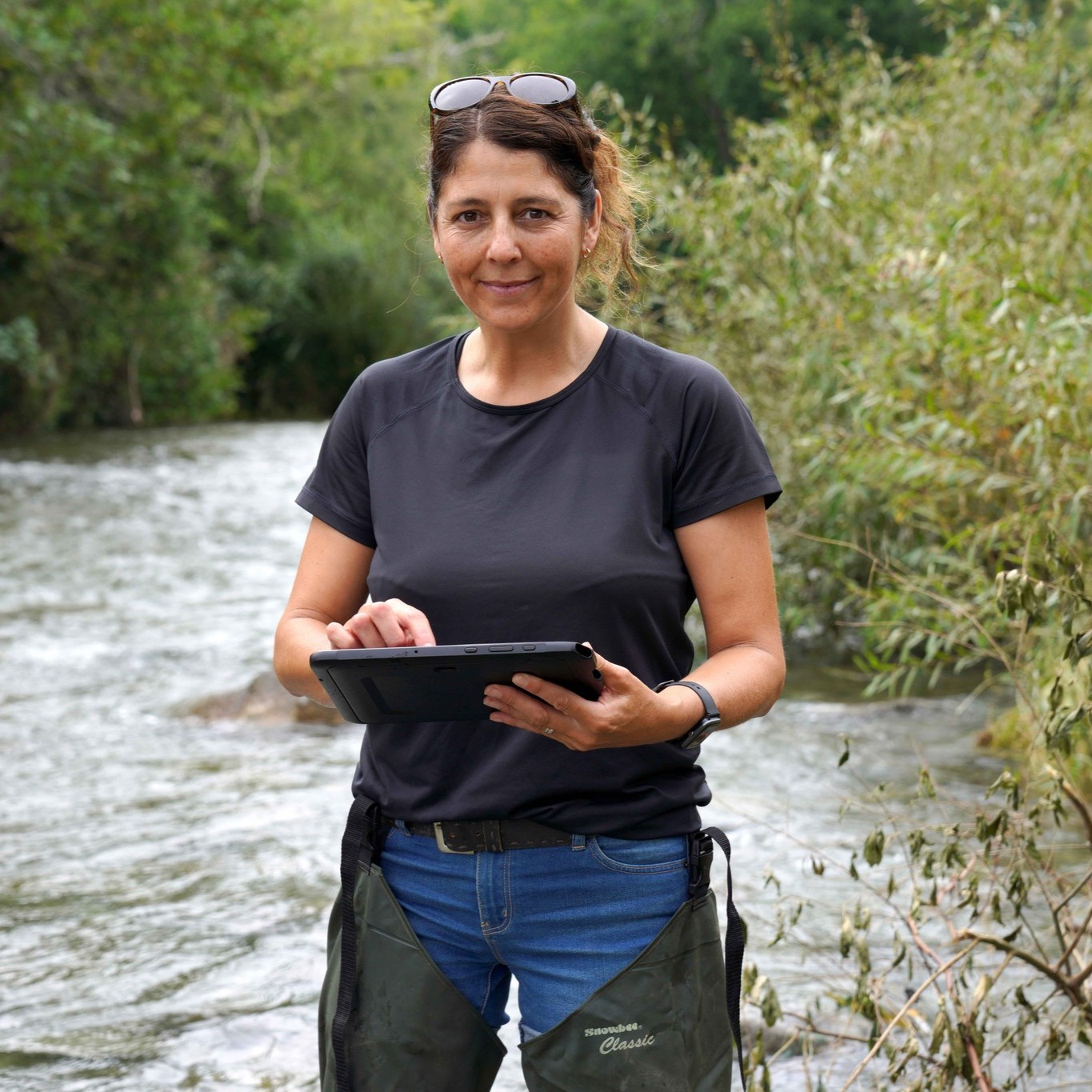
Dr Joanne Clapcott
Dr Clapcott promotes the integration of mātauranga Māori with freshwater science, emphasizing co-management, capacity building, and holistic approaches to enhance freshwater biosecurity and empower Māori communities.
Introduction:
Dr Joanne Clapcott is a freshwater ecologist and the Team Leader for Freshwater Ecosystems at Cawthron Institute, where she has focused on river health and its connections to social and cultural well-being for over 16 years. Although not currently working directly with whānau on Freshwater pests and predator eradication, her research emphasises the holistic health of freshwater ecosystems and the impact of policy changes on local communities. As a member of Ngāti Porou, Dr Clapcott collaborates with hapū like Te Aitanga a Mate on the Waiapu catchment plan and works with other iwi on projects focusing on Māori rights and interests in freshwater management. Her commitment to integrating mātauranga Māori with scientific research highlights the importance of community involvement in achieving sustainable environmental outcomes.
Dr Clapcott's journey in freshwater science began with a pivotal undergraduate course that made her realise the interconnectedness of aquatic ecosystems and human impact. She states, "I could look in the water, at the community living in the water, the bugs, and they could tell you something about how we were impacting the health of the awa." This early insight shaped her understanding of the importance of studying freshwater systems.
Growing up in Wairoa during Cyclone Bola highlighted to her the profound influence of nature on community dynamics. She reflects, "That was my first kind of light bulb moment, like the strength of nature to actually shape communities and how we interacted as people." This highlights the significance of local context and experiences in shaping her perspective.
Dr Clapcott’s Wisdom:
- The interplay of mātauranga Māori and science: Dr Clapcott emphasises the importance of integrating mātauranga Māori into research and applied science practices, describing her experiences working alongside Māori communities. She mentions, "I’ve been steeped in this Western science way, and the other learnings are relatively fresh for me. Every time I think I know something, I learn something new." This highlights the value of cross-cultural knowledge exchange.
- Holistic approaches to freshwater management: She advocates for a more holistic understanding of freshwater ecosystems that transcends traditional scientific compartmentalisation. She states, "It's a whole new framing and way of seeing things," stressing that scientific frameworks often overlook the deeper relationships that communities have with their environments.
- Empowerment of youth and community engagement: She sees significant potential in engaging rangatahi through cultural monitoring and hands-on learning experiences. Dr Clapcott observes, "You actually see the change in the capability of the young people you’re working with… They can take over," which reflects the transformative impact of involving younger generations in environmental stewardship.
- Vision for a reciprocal society: Reflecting on her vision for the future, she states, "It wouldn't be an extractive society. It would be a reciprocal society where we live with the land and the people that are here." This vision underscores the need for a paradigm shift in how society interacts with the environment.
- Challenges with institutional frameworks: Dr Clapcott expresses frustration with the existing institutional structures that tend to marginalise Indigenous perspectives. She notes, "It hasn’t explicitly come out 'We’re not interested in that,' but just the framing of funding always has these tack-on things," indicating that funding often fails to prioritise Indigenous knowledge and practices.
- Need for policy and institutional change: Dr Clapcott highlights the importance of establishing effective policy pathways that reflect a more integrated approach to freshwater management. She states, "It’s important to think about those as a mechanism to make sure that things aren’t so disparate and are more holistic and integrated." This points to a need for systemic change in how policies are designed and implemented.
- Long-term thinking and relationship-building: She emphasises the necessity of long-term relationships and a sustainable approach to resource management, stating, "Relationships take time. Things happen at different times for different people for a reason." This perspective highlights the importance of patience and understanding in fostering effective partnerships.
- Role of DOC and Resource Management: Dr Clapcott believes that the Department of Conservation should put more effort into its engagement with Māori communities in terms of decision-making processes. She says, "For me, it comes back to… The whole project should start with that conversation," emphasising the need for genuine collaboration and respect for Indigenous rights.
Dr Clapcott Recommends:
- Enhanced collaboration with Māori communities: Foster partnerships between the Department of Conservation and local iwi/hapū to create co-management frameworks for biosecurity efforts. Regular meetings should include Māori voices in decision-making processes and operational planning.
- Capacity building for Māori: Provide training and resources for Māori community members to enhance their skills in biosecurity management. Developing mentorship programs where experienced DOC staff support Māori representatives will help bridge knowledge gaps and empower communities.
- Incorporation of mātauranga Māori: Integrate traditional knowledge and practices into biosecurity management strategies through joint research initiatives that combine scientific and traditional ecological knowledge to address specific biosecurity challenges.
- Clear communication and information sharing: Establish transparent communication channels between DOC and Māori communities by creating bilingual resources that explain biosecurity issues, policies, and practices, ensuring accessibility for all community members.
- Integrating Te Ao Māori into biosecurity practices: Adopt cultural protocols and frameworks that recognise and respect tikanga Māori and kaitiakitanga principles in biosecurity initiatives.
In Summary:
Dr Clapcott’s insights highlight the critical importance of collaboration between the Department of Conserva tion and Māori communities in freshwater pest management. Key takeaways emphasise the need for co-management frameworks, capacity building for Māori, and the incorporation of mātauranga Māori into biosecurity practices.
Photo © Cawthron Institute


.png)



.png)
